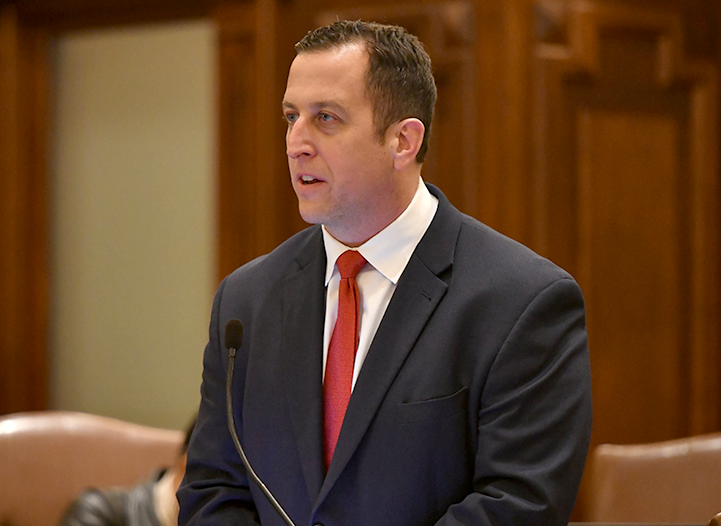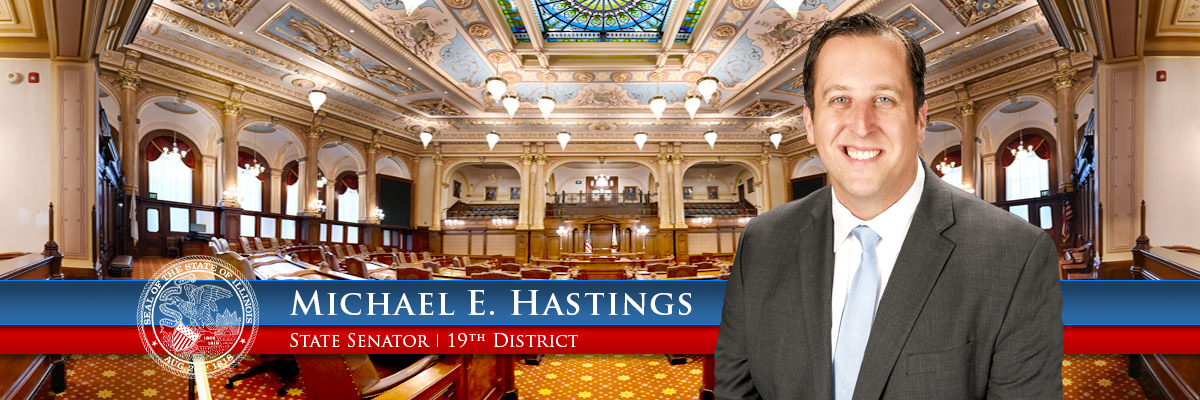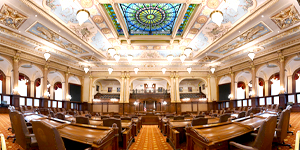Hastings fights to protect Illinoisans right to read
- Details
- Category: Press Releases

SPRINGFIELD – State Senator Michael E. Hastings fights to protect Illinoisans right to read.
Hastings (D-Frankfort) helped pass a measure requiring libraries or library systems to adopt the American Library Association’s Library Bill of Rights barring the action of banning books and materials to qualify for state grants.
“Our libraries create the opportunity for residents to explore the world,” Hastings said. “Banning books closes the door on open dialogue in our communities. We should not be in the practice of limiting access to thought provoking literary resources.”
Attempted book bans and restrictions at school and public libraries continue to surge, setting a record in 2022, according to a new report from the American Library Association.
Hastings announces scholarships available for early childhood education and workers
- Details
- Category: Press Releases

FRANKFORT – State Senator Michael E. Hastings is encouraging residents who work or have worked in early childhood education or childcare that are interested in obtaining additional certifications to apply for scholarship assistance.
Scholarships are still available for the 2022-23 school year, and the Illinois Student Assistance Commission is working with the Early Childhood Access Consortium for Equity to promote the scholarship program that can cover a student’s total cost of attendance which includes tuition and fees, books, and room and board.
“Those who work with our children help grow the future leaders of our great nation. These are selfless individuals who work diligently to establish an educational foundation for students,” said Hastings (D-Frankfort). “This scholarship program will help alleviate some of the financial burdens on our educators and childcare workers.”
Hastings reiterates that the program was established to help address the shortage of qualified early childhood educators. He believes the program will help alleviate the workforce shortage and entice more residents to work in the field.
“There is a nationwide shortage of educators and childcare providers,” Hastings said. “This is another way we are working to help alleviate the shortage and give our educators and childcare professionals the tools to be successful.”
Hastings supported the state budget that funded this scholarship to help provide residents with the resources to make college more affordable and increase accessibility to advance in these vital fields.
Detailed information on the scholarship program can be found on ISAC’s website at www.isac.org/ECACEscholarship.
Hastings urges eligible communities to apply for OSLAD assistance
- Details
- Category: Press Releases

FRANKFORT – State Senator Michael E. Hastings is urging communities across the South Suburbs to apply for grants to cover the costs of local park development through the Open Space Land Acquisition and Development program.
“Our local parks are essential to promoting a healthy lifestyle and the economic and environmental well-being of our communities,” said Hastings (D-Frankfort). “I encourage communities across the fighting 19th looking for assistance to take advantage of this opportunity.”
Hastings supported the Fiscal Year 2023 budget which set aside $56 million for OSLAD, the largest single investment in the program’s history, allowing the Department of Natural Resources to assist more communities than ever before.
The program, which usually requires matching funds for projects, now offers complete assistance for economically disadvantaged communities.
Applications are being accepted through Sept. 30, 2022 and should be submitted to IDNR. For more information on the OSLAD program, visit IDNR’s website.
Hastings announces Richton Park set to receive nearly $735,000 million
- Details
- Category: Press Releases

RICHTON PARK – Thanks to support from State Senator Michael E. Hastings, the Village of Richton Park will receive $735,000 as an investment from the Rebuild Illinois Downtowns and Main Streets program.
“The businesses across the fighting 19th District are the heart of our communities,” Hastings (D-Frankfort) said. “The investments we make in our business community is an investment in our local economy. Not only will this help create jobs and grow our economy – this funding will help contribute to the betterment of our neighborhoods and quality of life.”
With new federal funding made available through the American Rescue Plan Act, the Illinois Department of Commerce and Economic Opportunity administered grants to 50 commercial corridors throughout the state.
The Village of Richton received this funding to make needed improvements at the Town Center properties.
The Rebuild Illinois program is a historic $45 billion investment in Illinois’ transportation infrastructure and state facilities, passed in 2019 with support from Hastings.
DCEO originally administered $50 million for the program in 2021. Due to federal funding, the state allocated an additional $56 million to support more projects. With matching funds from recipients, a total investment of $215 million was made in downtowns across Illinois.
For a full list of recipients, visit Illinois.gov.
More Articles …
Page 29 of 59



